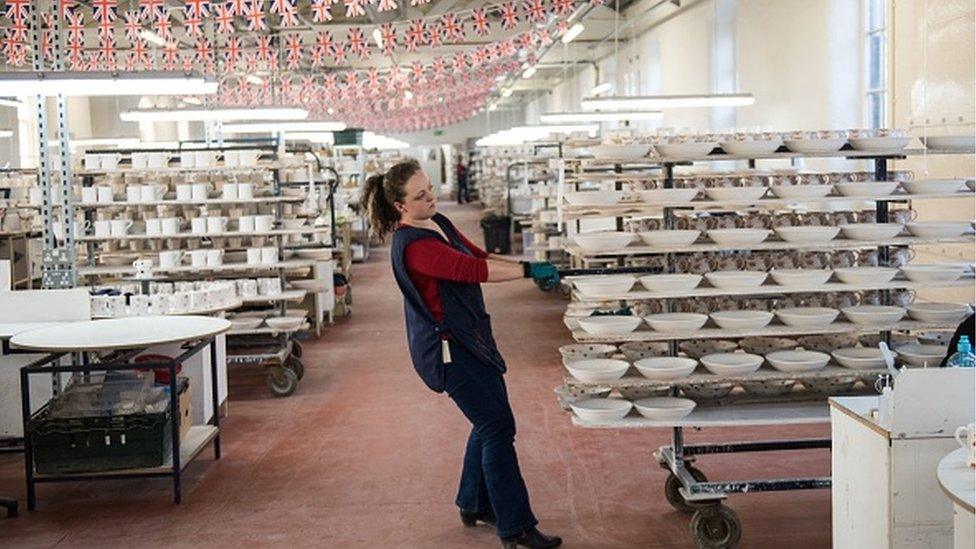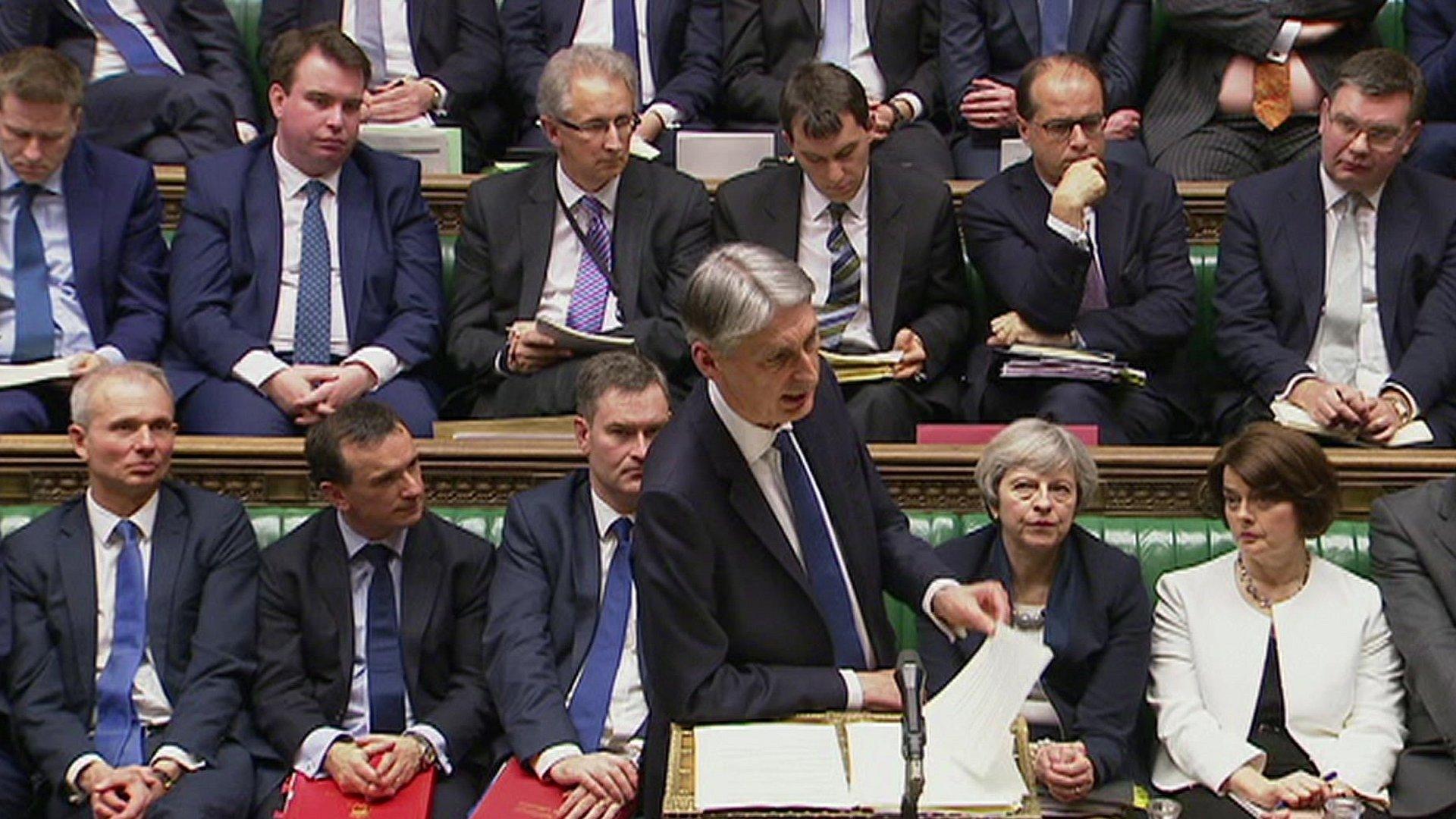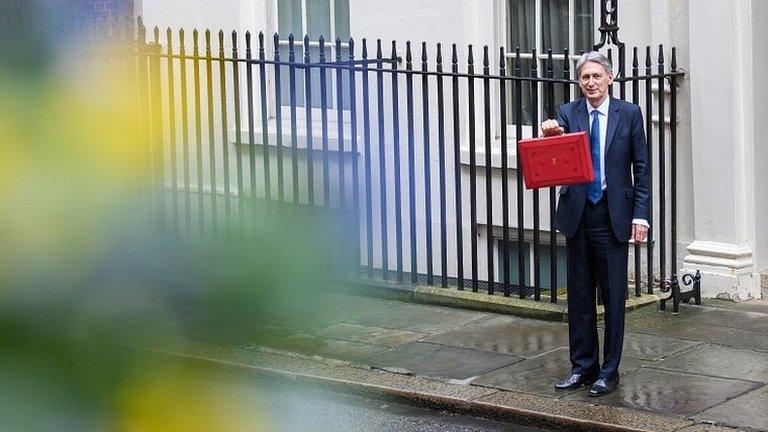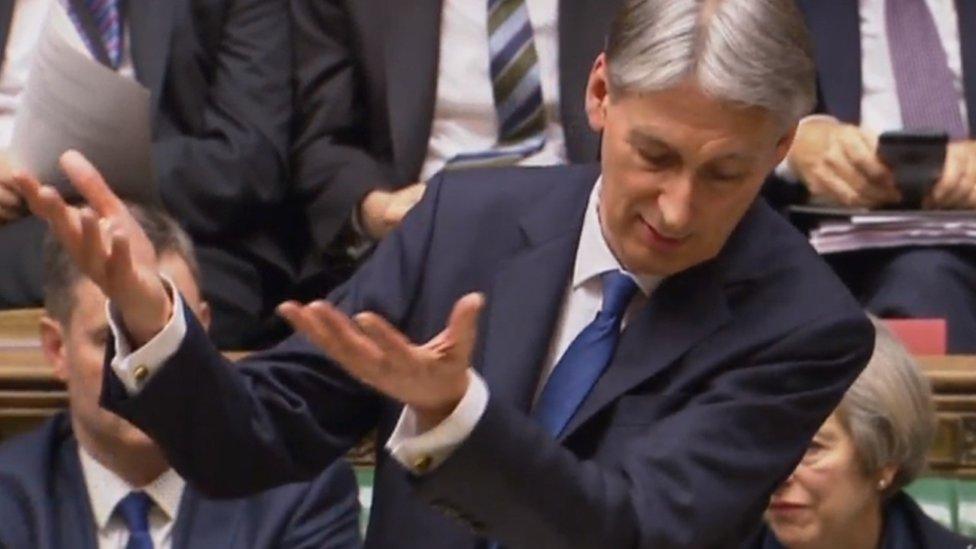UK business gives its Budget verdict
- Published

The chancellor has not done enough to help companies in the short-term, according to British business groups, while the self-employed have emerged as the "biggest losers" in the Budget.
The Institute of Directors and the British Chambers of Commerce said Philip Hammond had done little to encourage investment in the UK.
Firms needed support amid "such economic and political uncertainty".
The rise in self-employed National Insurance rates was also criticised.
Confederation of British Industry: Rates relief 'falls short'
"This is a breakthrough Budget for skills. There has never been a more important time for the UK to sit at the global top table of technical education for young people.
"However, with inflation rising and the cumulative burden weighing on businesses' shoulders, limited relief for firms hit hard by business rates falls short.

Institute of Directors: 'Little' investment incentive
"The 'nothing to see here' approach adopted by the chancellor will only fly for so long.
"Business leaders will applaud the long-term focus on improving technical skills and investment in research and development, but the business community will have hoped for much more support in the immediate term, especially amid such economic and political uncertainty.
"The business rates reliefs, while welcome, look distinctly modest at first glance, and there was very little in the Budget to provide incentives for business to invest today when they are already putting projects on hold."
British Chambers of Commerce: 'Mixed signals'
"While businesspeople appreciate a steady hand on the tiller, the government is sending mixed signals by holding investment largely steady at precisely the time that it is exhorting British businesses to double down.
"More needs to be done in the coming months to improve infrastructure and encourage lagging business investment to ensure the UK is Brexit-ready."

British Retail Consortium: 'Drop in the ocean'
"We hope that the relief measures will help some of those businesses hardest hit by the [business rates] revaluation, albeit only temporarily.
"However, more short-term relief measures continue to add complexity to an already impenetrable system. £435m is a drop in the ocean compared with the £25bn a year that the tax raises.
"This is yet another sticking plaster on a chronically ill patient - an unsustainable property tax higher here than anywhere in the developed world."
Society of Motor Manufacturers and Traders: 'Disappointing'
"UK automotive plays a critical role in the country's economy but future success will depend upon maintaining competitiveness.
"It's disappointing, therefore, that the chancellor hasn't prioritised additional funding for supply chain development, nor addressed the flaw in business rates that disincentivises investment in plants and machinery."
PwC: 'Emotional effect'
"Many business owners will be concerned however that they are now in the chancellor's sights for the remainder of this parliament.
"While the chancellor's logic about removing anomalies in the system is hard to fault, it has an emotional effect on self-starters - the very people the chancellor most needs to rely on.
"[The] worry is that by binding themselves with the tax lock, the government will continue to look at the entrepreneurial sectors of the economy for the tax rises it needs."
Federation of Small Businesses: Self-employed growth 'at risk'
"The National Insurance rise to 10% next year and 11% in 2019 should be seen for what it is - a £1bn tax hike on those who set themselves up in business.
"This undermines the government's own mission for the UK to be the best place to start and grow a business, and it drives up the cost of doing business. Future growth of the UK's 4.8 million-strong self-employed population is now at risk. "

Resolution Foundation: 'Right' reform
"The chancellor is right to begin tackling the unfair and expensive tax advantages enjoyed by self-employed workers by increasing the rate of National Insurance contributions they make."
Association of Independent Professionals and the Self Employed: Entrepreneurs 'hit'
"The self-employed were the biggest losers in Chancellor Philip Hammond's Budget.
"If you are one of the hardworking self-employed people who face a significant increase on your tax bill, you might feel that the chancellor has it in for you.
"When you look at the additional support offered for business rates it appears as if the chancellor is supporting SMEs by hitting entrepreneurs and the smallest of businesses."
- Published8 March 2017

- Published8 March 2017

- Published8 March 2017
